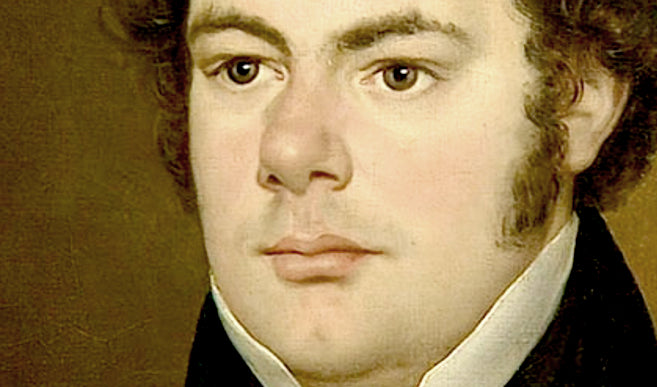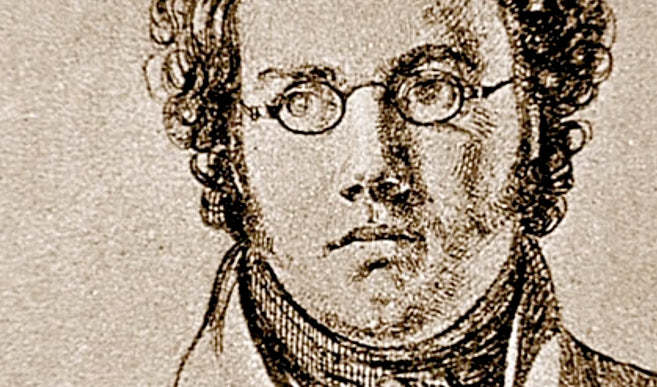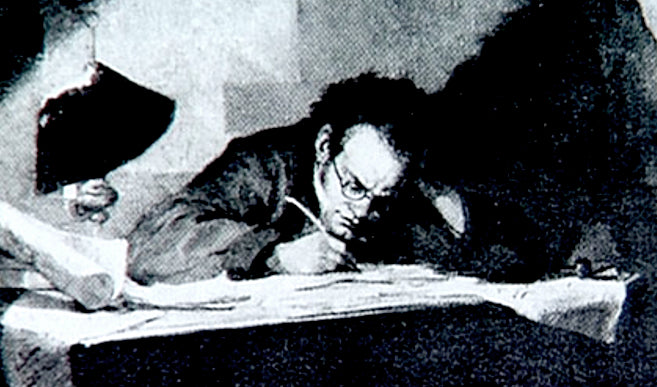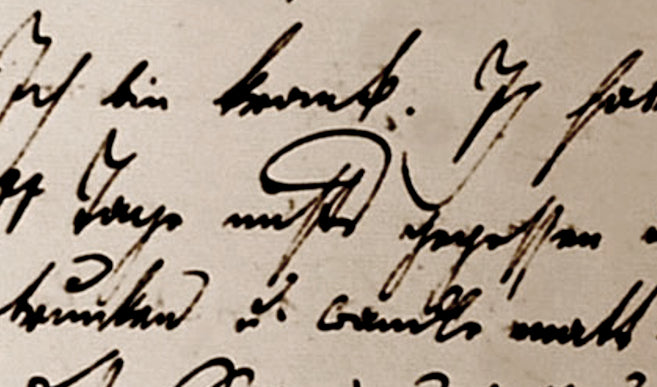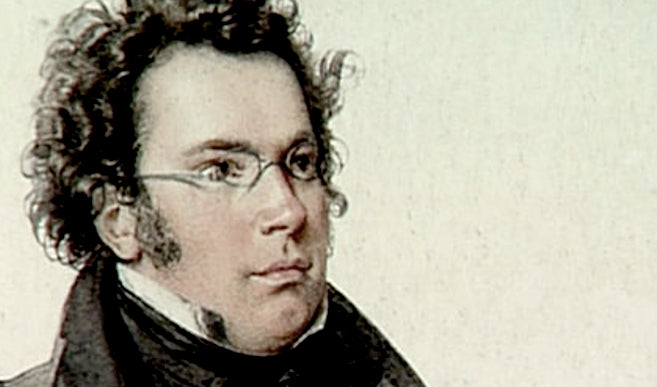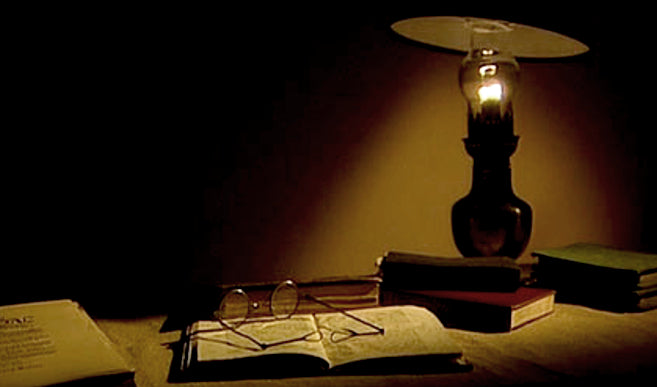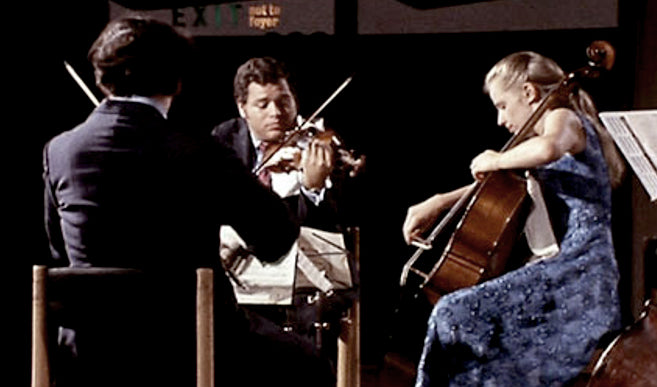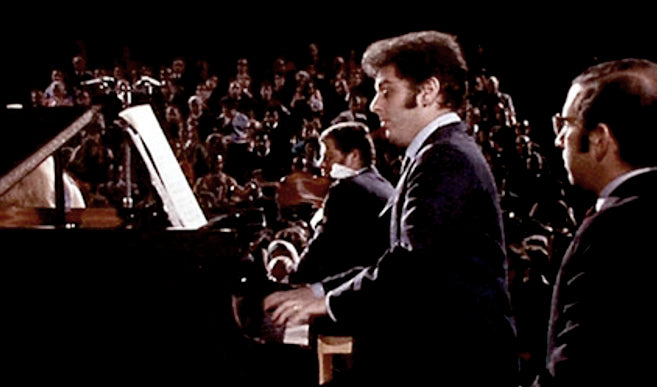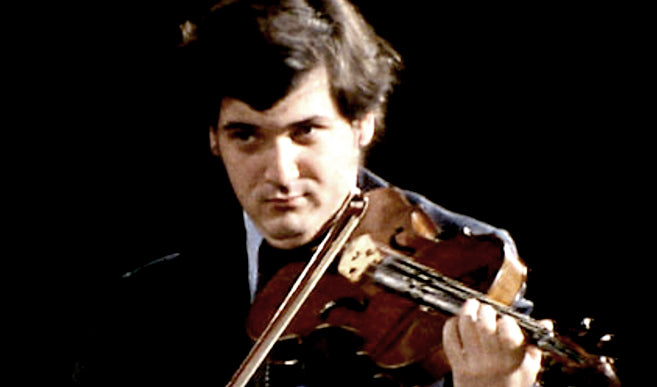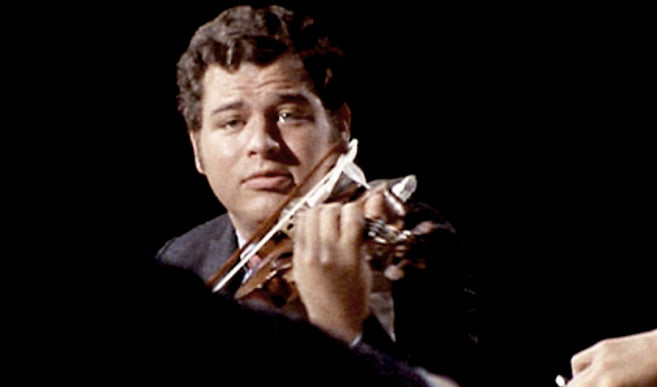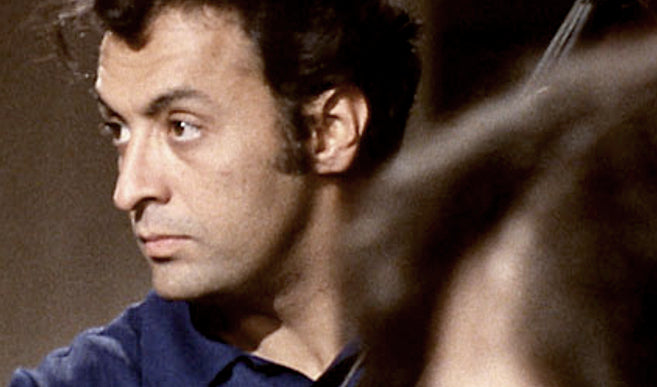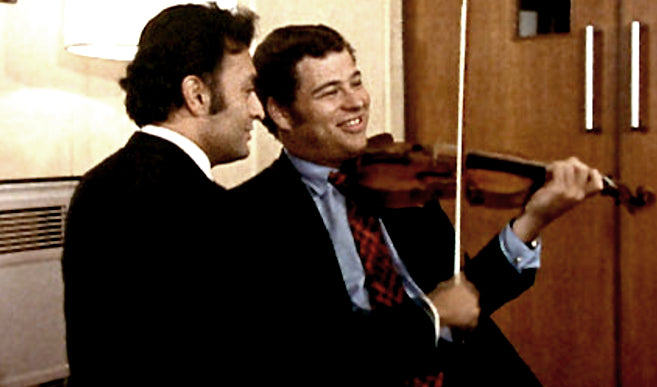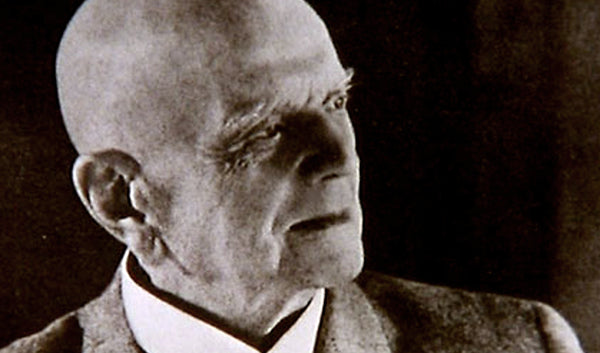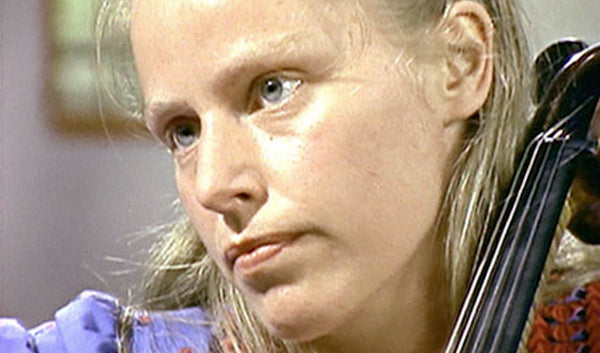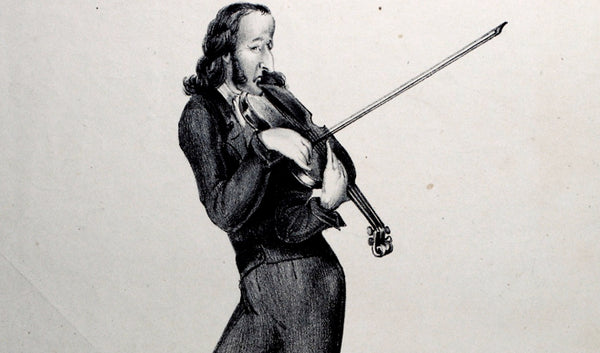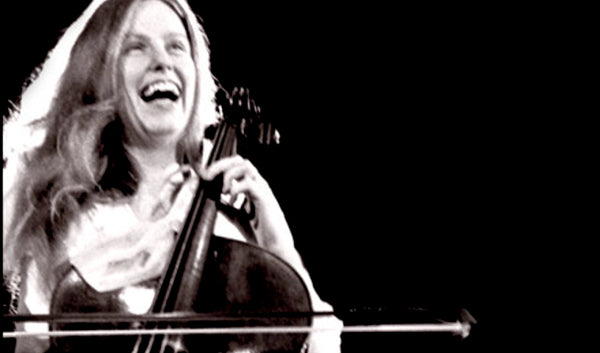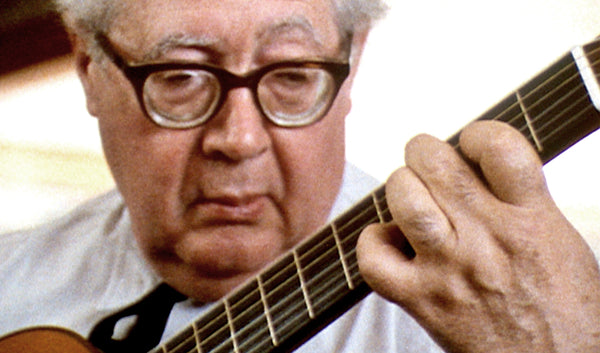I believe that there are thousands, perhaps millions, of people in the world who will say that Schubert is their favourite composer, but, if questioned, will not dare to put him on the level of Bach or Mozart or Beethoven. I have encountered this dozens of times.
- Christopher Nupen
|
AWARDS: Winner of the Czech Crystal Award, Prague 1994 (The Greatest Love and the Greatest Sorrow)
Nominated at BANFF |
The reasons are not far to seek. Schubert died young and for all the appreciation of his intimate circle of friends he was undervalued in his own lifetime and for at least a century more because he failed to achieve public recognition and financial success. He was the first great composer in Western music to live by his art alone, without patronage, and he enjoyed only one public concert of his music in the whole of his life.
This most poignant of tributes to Schubert.
Sir Isaiah Berlin
When Schubert died at the age of thirty-one his friend Franz Grillparzer, saddened and well-intentioned, but misguided, wrote this epitaph: "Music has buried here great riches but far fairer hopes".
Those words remain on Schubert's tombstone and perpetuate what I see as an astonishingly durable misconception: the myth that Schubert never achieved complete maturity because he died young and that he failed to reach the level of the greatest masters. In my view, both of those ideas are manifestly untrue.
The Trout
On August 30th 1969, five young musicians, all of whom were about to become established as international artists of the highest rank, came together to play Schubert's "Trout Quintet" in the new Queen Elizabeth Hall in London. Their names: Daniel Barenboim, Itzhak Perlman, Pinchas Zukerman, Jacqueline du Pré and Zubin Mehta.
It was clear to us that the concert might well become legendary in time and so we decided to make a film about it.
The intention was two-fold: to film the concert itself live on stage, exactly as it happened, with five of the newly invented, silent 16mm film cameras and to make an introduction to it during the preceding week, documenting the preparations and, in particular, the spirit behind the event.
The artists had all been intimate friends for many years, but, more importantly, they had a great deal in common musically and, in addition, they shared an exuberance in their talents which was as appealing as it was filmable.
The introduction takes the television viewer into areas of music-making that are not normally accessible even to the committed concert-going public and the first part of the film ends with the final seven minutes of back-stage preparation before the concert. They are minutes which contain scenes that have passed into musical and television history.
The film then continues with the complete performance shot during the concert, just as it happened, with not a note re-taken.
The Greatest Love and the Greatest Sorrow
Franz SchubertSchubert's reputation also suffered from the fact that he did things differently and when a work of art is new and different, and the world cannot categorise or label it, it often takes a long time for the world to understand and accept what that work has to offer. In some ways, these things haunt Schubert's reputation even today.
We think that we can reach one another but, in reality, all that we can do is to approach and pass each other by. What torment for those who realise this.
Franz Schubert
To complicate the picture still further, Schubert lived, and in some ways his music continues to live, under the shadow of Beethoven. Schubert himself asked the question "Wer vermag nach Beethoven noch etwas zu machen?" (Who would dare to do anything after Beethoven?). The answer, of course, was Franz Peter Schubert and, most notably, in the music that he wrote after the death of his God, Ludvig van Beethoven.
Wer vermag nach Beethoven noch etwas zu machen? (Who would dare to do anything after Beethoven?)
Franz Schubert
Background
I know from my own experience that films of this kind frequently work at their best when they are helping people to discover for themselves things which they feel they really knew already. And so, if Schubert is indeed undervalued while so many people are so touched by his music, this film may serve a very good purpose. It does not focus on Schubert's life or career, however. Instead, it uses Schubert's words and music to try and help the viewer feel closer to what the composer himself felt that he was trying to say.
The film begins with the funeral of Beethoven, at which Schubert was a torch-bearer, and the story is told almost entirely in music that Schubert wrote in the twenty months that remained to him after that date, together with quotations from his letters and diaries and the words that he chose to set in some of his songs.
Our title, THE GREATEST LOVE AND THE GREATEST SORROW, is drawn from a dream which Schubert wrote down, in detail, on the 3rd of July, 1822 and which is quoted in full in the film.
DVD Extra features
This DVD contains two of our most successful films.
The titles are: THE TROUT, made in 1969 with Daniel Barenboim, Itzhak Perlman, Pinchas Zukerman, Jacqueline du Pré and Zubin Mehta and FRANZ PETER SCHUBERT: THE GREATEST LOVE AND THE GREATEST SORROW, which many critics think is our best.
THE TROUT is almost certainly the most frequently televised classical music programme made until now. When it was broadcast for the eighth time in Germany on May 25th, 1994 on the ARTE network it drew the biggest audience of all classical music transmissions on that network during the whole of the year - twenty-five years after the film first appeared!
I believe that there are thousands, perhaps millions, of people in the world who will say that Schubert is their favourite composer, but, if questioned, will not dare to put him on the level of Bach or Mozart or Beethoven. I have encountered this dozens of times.
- Christopher Nupen
|
AWARDS: Winner of the Czech Crystal Award, Prague 1994 (The Greatest Love and the Greatest Sorrow)
Nominated at BANFF |
The reasons are not far to seek. Schubert died young and for all the appreciation of his intimate circle of friends he was undervalued in his own lifetime and for at least a century more because he failed to achieve public recognition and financial success. He was the first great composer in Western music to live by his art alone, without patronage, and he enjoyed only one public concert of his music in the whole of his life.
This most poignant of tributes to Schubert.
Sir Isaiah Berlin
When Schubert died at the age of thirty-one his friend Franz Grillparzer, saddened and well-intentioned, but misguided, wrote this epitaph: "Music has buried here great riches but far fairer hopes".
Those words remain on Schubert's tombstone and perpetuate what I see as an astonishingly durable misconception: the myth that Schubert never achieved complete maturity because he died young and that he failed to reach the level of the greatest masters. In my view, both of those ideas are manifestly untrue.
The Trout
On August 30th 1969, five young musicians, all of whom were about to become established as international artists of the highest rank, came together to play Schubert's "Trout Quintet" in the new Queen Elizabeth Hall in London. Their names: Daniel Barenboim, Itzhak Perlman, Pinchas Zukerman, Jacqueline du Pré and Zubin Mehta.
It was clear to us that the concert might well become legendary in time and so we decided to make a film about it.
The intention was two-fold: to film the concert itself live on stage, exactly as it happened, with five of the newly invented, silent 16mm film cameras and to make an introduction to it during the preceding week, documenting the preparations and, in particular, the spirit behind the event.
The artists had all been intimate friends for many years, but, more importantly, they had a great deal in common musically and, in addition, they shared an exuberance in their talents which was as appealing as it was filmable.
The introduction takes the television viewer into areas of music-making that are not normally accessible even to the committed concert-going public and the first part of the film ends with the final seven minutes of back-stage preparation before the concert. They are minutes which contain scenes that have passed into musical and television history.
The film then continues with the complete performance shot during the concert, just as it happened, with not a note re-taken.
The Greatest Love and the Greatest Sorrow
Franz SchubertSchubert's reputation also suffered from the fact that he did things differently and when a work of art is new and different, and the world cannot categorise or label it, it often takes a long time for the world to understand and accept what that work has to offer. In some ways, these things haunt Schubert's reputation even today.
We think that we can reach one another but, in reality, all that we can do is to approach and pass each other by. What torment for those who realise this.
Franz Schubert
To complicate the picture still further, Schubert lived, and in some ways his music continues to live, under the shadow of Beethoven. Schubert himself asked the question "Wer vermag nach Beethoven noch etwas zu machen?" (Who would dare to do anything after Beethoven?). The answer, of course, was Franz Peter Schubert and, most notably, in the music that he wrote after the death of his God, Ludvig van Beethoven.
Wer vermag nach Beethoven noch etwas zu machen? (Who would dare to do anything after Beethoven?)
Franz Schubert
Background
I know from my own experience that films of this kind frequently work at their best when they are helping people to discover for themselves things which they feel they really knew already. And so, if Schubert is indeed undervalued while so many people are so touched by his music, this film may serve a very good purpose. It does not focus on Schubert's life or career, however. Instead, it uses Schubert's words and music to try and help the viewer feel closer to what the composer himself felt that he was trying to say.
The film begins with the funeral of Beethoven, at which Schubert was a torch-bearer, and the story is told almost entirely in music that Schubert wrote in the twenty months that remained to him after that date, together with quotations from his letters and diaries and the words that he chose to set in some of his songs.
Our title, THE GREATEST LOVE AND THE GREATEST SORROW, is drawn from a dream which Schubert wrote down, in detail, on the 3rd of July, 1822 and which is quoted in full in the film.
DVD Extra features
This DVD contains two of our most successful films.
The titles are: THE TROUT, made in 1969 with Daniel Barenboim, Itzhak Perlman, Pinchas Zukerman, Jacqueline du Pré and Zubin Mehta and FRANZ PETER SCHUBERT: THE GREATEST LOVE AND THE GREATEST SORROW, which many critics think is our best.
THE TROUT is almost certainly the most frequently televised classical music programme made until now. When it was broadcast for the eighth time in Germany on May 25th, 1994 on the ARTE network it drew the biggest audience of all classical music transmissions on that network during the whole of the year - twenty-five years after the film first appeared!


